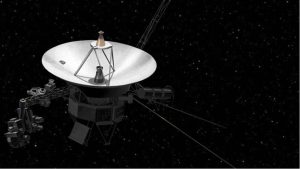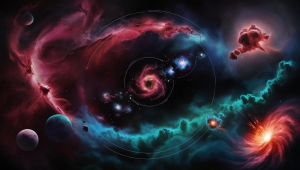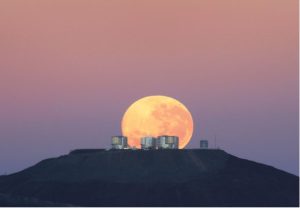
WORMHOLES:COSMIC SHORTCUTS
What if you could rocket from Earth, not to the Moon or Mars, but down a wormhole that loops all the way across the vast Milky Way, slashing travel time
Astronomy, the research study of deep space, has long been an area that astounds both experts as well as beginners alike. From old people who stared at the stars with marvel to today’s readily progressed observatories, our mission to recognize deep space has continued to be a deeply human venture. In current years an expanding motion referred to as citizen scientific research has changed exactly how we come close to astronomy welcoming normal individuals to add straight to clinical research study. The increase of citizen scientific research in astronomy is transforming the area, supplying expert astronomers with much-needed help while supplying lovers with a significant means to join the expedition.
What is Citizen Science?
Citizen science describes clinical study performed, as a whole or partly by amateur or non-professional researchers. Fundamentally, it entails the general public collecting information, assessing outcomes, and making payments to different clinical areas consisting of astronomy. This is not a brand-new sensation– individuals have been adding to clinical research study for centuries, usually serving as “all-natural theorists” before the formalization of specialist scientific research. Nonetheless, the net as well as technical improvements have dramatically raised possibilities for the general public to participate in large-scale tasks.
Citizen scientific research can take numerous types, from cataloging galaxies to checking variable stars as well as looking for brand-new earth. Web sites and also systems like Zooniverse, Galaxy Zoo, as well as the American Association of Variable Star Observers (AAVSO) supply available means for citizen researchers to add to real-world astronomical research studies.
Why Citizen Science is Essential in Astronomy
Massive Data Processing:
One of the most substantial obstacles in modern-day astronomy is taking care of the frustrating quantity of information created by telescopes, satellites as well as various other tools. Large-scale tasks like the Sloan Digital Sky Survey (SDSS) as well as the upcoming Vera C. Rubin Observatory’s Legacy Survey of Space plus Time (LSST) generate large quantities of information that no solitary researcher and even research study group can assess alone. Citizen researchers play an essential duty in refining these details, aiding celestial items in classifying galaxies together with area abnormalities that could be missed out on by automated formulas.
Galaxy Zoo as an example, arose from the requirement of infiltrating countless photos of galaxies from the SDSS. Individuals were asked to categorize these galaxies based on their form plus framework, something that automated software applications have a hard time doing accurately. Within days of its launch, Galaxy Zoo brought in hundreds of volunteers who rapidly arranged numerous galaxies, much beyond what any type of tiny team of astronomers might complete.
Making New Discoveries:
A few of the most amazing payments from citizen researchers can be found in this kind of exploration. Beginners have long played a duty in finding comets, variable stars, and also supernovae, however, today’s citizen researchers are discovering brand-new items at an extraordinary price. For example, the exploration of “Green Pea” galaxies– tiny, intense galaxies producing extreme ultraviolet light– was made by volunteers working with Galaxy Zoo.
Furthermore, the exploration of exoplanets– earth outside our planetary system– has been significantly improved by the initiatives of citizen researchers. NASA’s Planet Hunters job, the component of the Zooniverse system welcomes individuals to look for the little dips in illumi exploration that happen when a worts before its host star. This joint method has resulted in the recognition of several brand-new exoplanets that expert astronomers had ignored.
Enjoying Public Engagement with Science:
Past the useful advantages citizen scientific research additionally plays an important function in promoting public interaction with scientific research. By entailing individuals straight into study, astronomy ends up being extra available as well as much less abstract. Individuals feel a feeling of possession as well as link to the explorations they aid make, which can trigger long-lasting interest in astronomy along with STEM (scientific research, modern technology, design, as well as math) areas.
This interaction additionally produces a much more clinically literate culture. As individuals overcome complicated information they discover to believe seriously plus comprehend the clinical procedure much more deeply. Citizen scientific research demystifies research study, separating the regarded obstacles between specialists and also novices.
Range in Research:
Citizen scientific research opens up astronomy to a more comprehensive varied team of individuals. It does not call for a Ph.D. or pricey tools to add meaningfully to astronomical study. All that is required is inquisitiveness as well as a desire to find out. This inclusiveness can bring fresh points of view as well as originalities to the area damaging typical obstacles to entrance in scientific research.
Furthermore it can aid expert astronomers take advantage of an large, international network of individuals that can offer monitoring from various places. As an example, amateur astronomers add important monitoring of beautiful occasions like eclipses together with meteor showers from worldwide supplying information that would certainly or else be hard to reach to a solitary observatory.
The Future of Citizen Science in Astronomy
As innovation remains to progress, the possibilities for citizen scientific research in astronomy will just increase. Artificial intelligence coupled with an expert system (AI) are starting to be made use of together with citizen scientific research jobs with AI dealing with regular jobs coupled with flagging locations for human focus. Tasks like the Rubin Observatory’s LSST which is anticipated to record a picture of the whole noticeable skies every couple of evenings will greatly rely upon citizen researchers to figure out plus assess the deluge of information.
In addition, as space expeditions include Earth’s orbit, citizen scientific research can contribute in objectives to the Moon, Mars as well as past. As an example, amateur astronomers might check asteroids or comets that might pose a hazard to area objectives while others might assist in determining touchdown websites or map noncitizen terrains.
Citizen scientific research has actually come to be an important part of modern-day astronomy. It permits specialist astronomers to take on large quantities of information, increases the speed of exploration as well as involves the general public in purposeful clinical query. The collaboration between specialists as well as beginners is equally helpful, progressing our understanding of deep space while egalitarian scientific research. As we remain to check out deep space, citizen researchers will definitely continue to be at the leading edge, adding to the mission to find the secrets of the stars.

What if you could rocket from Earth, not to the Moon or Mars, but down a wormhole that loops all the way across the vast Milky Way, slashing travel time

If you go outdoors on a clear evening and also search for it, you might have the ability to see Jupiter beaming brilliantly amongst the celebrities. At the exact same

Stars, the dazzling points of light that fill up the evening skies are the foundation of galaxies plus the cradles of life itself. From their birth in large clouds of

In the mission to recognize deep space mankind has actually developed progressively effective devices to observe deep space. Completion of this venture is the Extremely Large Telescope (ELT) which is

Space debris, also known as space junk, refers to the defunct artificial objects orbiting Earth. These objects include decommissioned satellites, spent rocket stages, and fragments from collisions and explosions.

The search for exoplanets– planets that orbit stars outside our planetary system– has actually quickly developed into one of the most interesting and dynamic fields of astronomy
Write to
Jasmine Gogoi at csr@scientifictemperament.com
Let’s develop our society with a scientific heart. Join us to build the scientifically nurtured future →